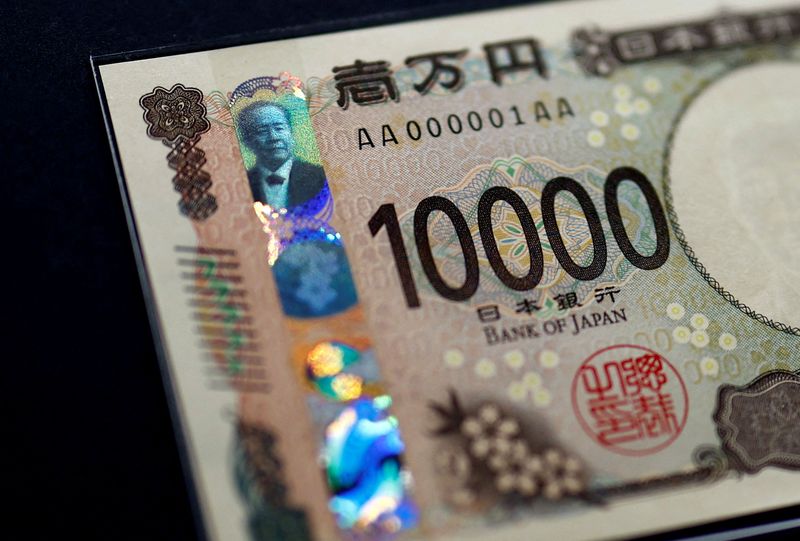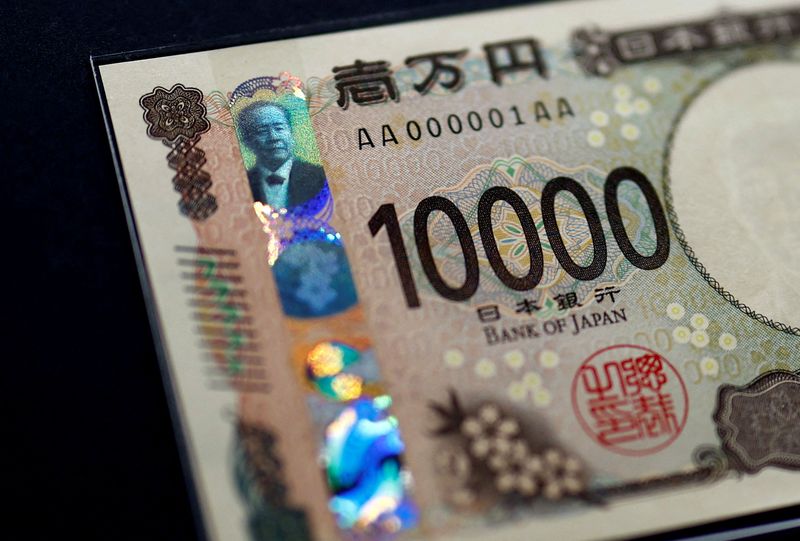
LONDON (Reuters) -The Japanese yen jumped by the most since late 2022 on Thursday, in a move traders said was most likely the result of dollar selling after a weak reading of U.S. consumer inflation, rather than official intervention from Tokyo authorities.
The dollar dropped by as much as 2.5% against the yen, set for the biggest daily decline since late 2022, when the Bank of Japan stunned markets with a surprise tweak to its monetary policy programme. It had intervened to prop up the yen for the first time since 1998 a few weeks before.
But the scale and speed of the move was similar to those seen when the BOJ stepped in earlier this year to prop up the yen, which is trading close to its weakest in 38 years.
Japan’s Ministry of Finance and the New York Federal Reserve were not immediately available for comment when contacted by Reuters.
Several currency analysts told Reuters they thought the move was more likely triggered by options-related activity following the consumer price report, rather than intervention.
The dollar fell as much as 2.7% to 157.4 yen. . It was last trading at 158.45 yen, down 2% on the day, the lowest since mid-June.
The yen strengthened across the board and the euro was down 2% at 171.60 yen (EURJPY=EBS), while sterling fell 1.4% to 204.72 yen, as did the Australian dollar, which fell to 107.50 yen.
“It’s certainly a big move but I don’t think we can say it’s anything to do with intervention,” said Societe Generale (OTC:SCGLY)’s head of corporate research FX and rates Kenneth Broux.
“The US CPI has been a trigger and it’s more about stops being triggered than intervention,” he said.
Investors have relentlessly sold the yen for months, given how much lower interest rates are in Japan than anywhere else.
The most recent weekly data from the U.S. regulator shows speculators are sitting on bets against the yen worth $14.26 billion, not far from April’s 6-1/2 year high, according to LSEG data.

Thursday’s inflation data raised the chances of the Federal Reserve cutting rates sooner than expected, which would narrow the gap between U.S. rates and Japanese ones.
“Dollar/yen long positions were very stretched so it appears to be position unwinding after U.S. CPI,” said Yusuke Miyairi FX strategist at Nomura.
This post is originally published on INVESTING.


